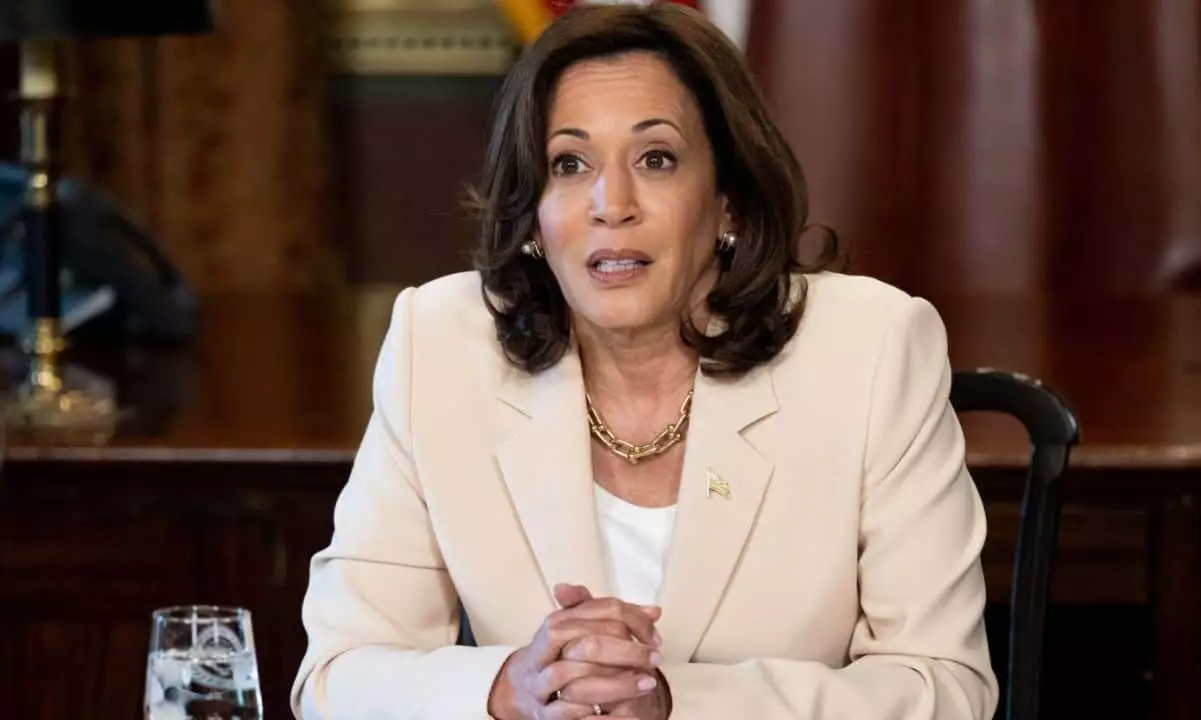As the U.S. gears up for another presidential election cycle, the topic of cryptocurrency is increasingly breaking into the broader political discourse. In a recent commitment, Vice President Kamala Harris announced her intention to develop digital asset policies aimed at protecting crypto investors, particularly emphasizing support for Black men involved in the sector. This bold declaration comes at a time when communities of color are increasingly investing in digital currencies, but it raises questions as to how authentically these pledges will manifest in policy. The subtext of this campaign strategy reveals significant implications—not just for the Vice President’s aspirations, but for the future of cryptocurrency regulation in the U.S.
Statistics reveal that around 20% of Black Americans have engaged with cryptocurrency, which underscores the growing importance of this financial technology within the community. Cryptocurrency offers the potential for increased access to banking services that have often been out of reach for marginalized groups. Harris’s campaign highlights this opportunity by addressing how new technologies can serve as tools for financial liberation. It shines a light on the systemic barriers that have historically hindered equitable access to financial resources and opportunities for African Americans.
However, despite the acknowledgment of these statistics and the essential narrative around inclusivity, the Harris campaign’s lack of concrete details regarding a regulatory framework for digital assets raises eyebrows. It is crucial to move beyond mere promises of support into actionable policies that genuinely protect and empower investors from underserved communities. A strategy that is robust, detailed, and inclusive is paramount for ensuring these voices are not just heard but integrated into the fabric of policy-making processes.
Criticism surrounding Harris’s commitment has quickly surfaced, especially from advocates within the cryptocurrency community who see her statements as lacking substance. Notably, Harris’s omission of industry-specific terminology such as “blockchain” and “digital assets” during public engagement demonstrates a concerning disconnect from the very technologies she seeks to embrace. Critics have pointed out that without a solid understanding of the landscape, the policy framework proposed will likely lack depth, leaving stakeholders once again unprotected.
The comparison drawn by some between Harris’s approach and that of her predecessor, Donald Trump, further complicates the assessment of her credibility within the crypto sector. Trump has pivoted his stance on cryptocurrency over recent months, presenting himself as a proponent of digital assets by offering detailed plans for regulatory changes. The stark difference in approach has left many questioning whether Harris can meet the expectations set by her campaign without being overshadowed by her opposition.
Moreover, the political dynamics surrounding cryptocurrency in this election cycle cannot be overlooked. The relationship between black voters and the Democratic Party has historically been strong, yet the emergence of cryptocurrencies offers both a challenge and an opportunity to redefine that bond. As the Republican candidate positions himself favorably within the crypto community, Democrats must grapple with the dual challenge of maintaining their traditional voter base while engaging with innovative financial technologies that resonate with younger, more tech-savvy constituents.
Additionally, the Biden administration, with Harris as part of its fabric, has not escaped criticism in crypto circles. The stance taken by SEC Chair Gary Gensler has raised concerns about regulatory overreach, prompting many to associate the administration with policies that are not favorable towards digital assets. As a member of this administration, Harris must navigate these turbulent waters carefully, or risk alienating a segment of the electorate that feels misrepresented.
Vice President Kamala Harris’s pledge to support policies protecting crypto investors, particularly among Black men, is a commendable step towards embracing inclusivity in emerging financial technologies. However, the real challenge lies in translating promises into a structured, insightful regulatory framework that genuinely meets the needs of marginalized communities. As the political landscape continues to evolve, stakeholders will undoubtedly be watching closely to see whether Harris and her campaign can deliver a vision that resonates authentically and effectively amidst the dynamic world of cryptocurrency. The stakes are high, not only for her candidacy but for the future of equitable financial participation in America.

